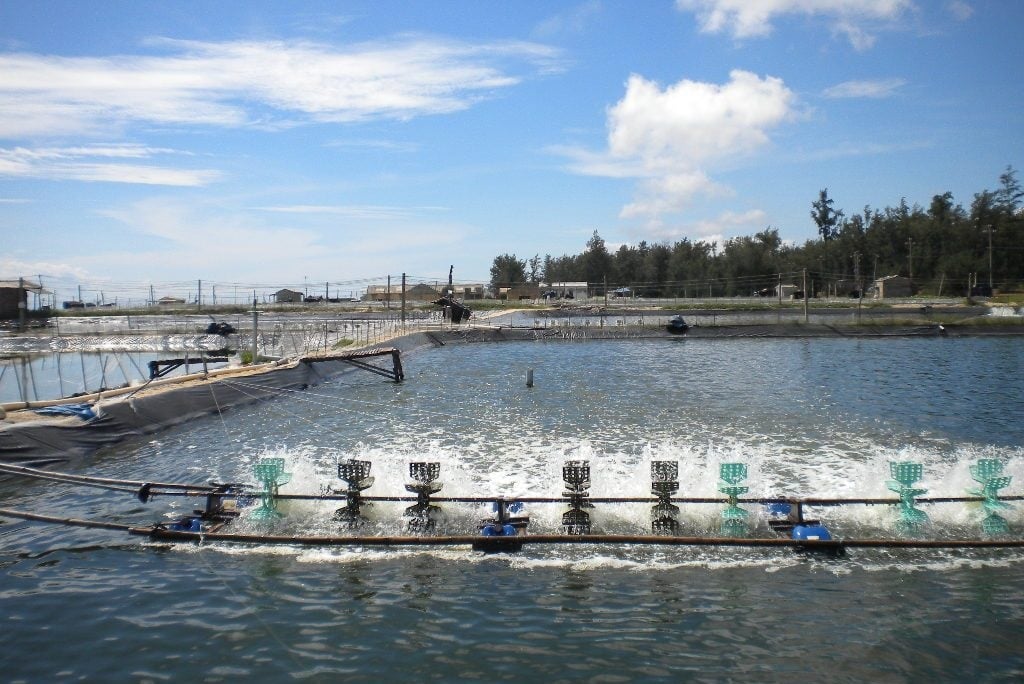May 29, 2025 | 23:59 GMT +7
May 29, 2025 | 23:59 GMT +7
Hotline: 0913.378.918
May 29, 2025 | 23:59 GMT +7
Hotline: 0913.378.918

The aim of the project is to control and prevent pollution in aquaculture.
The aim of the project is to control and prevent environment pollution in aquaculture; preventing and dealing with environment incidents; protecting and developing aquatic resources and habitat, thereby contributing to preventing biodiversity loss; enhancing adaptive capacity, reducing greenhouse gas emissions; building and developing the models of circular economy and green economy in fisheries industry towards environment protection and sustainable development of the fisheries sector.
The goal of the project is to ensure that the sources of pollution and wastes from aquaculture activities will be investigated, evaluated, managed and controlled by 2030; ending the use of toxic chemicals in aquaculture to prevent water pollution and biodiversity loss.
Additionally, natural aquatic resources for social-economic development will be studied, inventoried, assessed and developed; environmental problems in aquaculture activities will be handled and the capacity of the fisheries sector to prevent environment incidents will be strengthened.
Environment monitoring system serving the management of the fisheries sector including soil, water, sediment monitoring will be effectively deployed; key ecosystems for aquatic resources such as mangrove forests, sea-grass beds and coral reefs will be conserved and restored, contributing to preventing biodiversity loss. Besides, the project aims to develop and issue at least two action plans on conservation of aquatic species prioritized for protection; contributing to enhancing adaptive capacity and reducing greenhouse gas emissions; maintaining an annual growth rate of 8% in term of aquaculture farming area in accordance with sustainable and good aquaculture practices.
The models of circular economy and green economy in the seafood value chain will be studied, put into practice and scaled up.
To achieve the above goals, the Project also offers specific solutions including: increasing the stakeholders' awareness of environment protection in aquaculture activities; developing and applying sciences and technologies in aquaculture production and aquatic waste treatment; investing in infrastructure construction to ensure the treatment, collection, storage and transportation of waste from aquatic production.
At the same time, the focus will be put on developing mechanism and policies for promoting the exploitation, investment and restoration of aquatic resources; socializing the protection of aquatic environment and enhancing the enforcement of policies and laws on environment conservation in aquaculture activities.
Translated by Mai Tham

(VAN) Ms. Nguyen Thi Dung, Deputy Director of Ngoc Hoang Cooperative, shared about the journey of bringing dragon fruit to Europe, achieving annual revenues in the billions of VND.

(VAN) Bamboo products from Thang Tho Bamboo Cooperative have reached many countries around the world, while also creating jobs for local workers.

(VAN) The Management Board of Con Dao National Park reported that a green sea turtle, tagged in the Philippines, has traveled thousands of kilometers to lay 84 eggs on Bay Canh Islet.

(VAN) Green technology is paving a new path for sustainable aquaculture in the Mekong Delta in particular and across the country in general, helping reduce emissions and adapt to climate change.

(VAN) On May 27, La French Tech Vietnam (the French startup and innovation community in Vietnam) held the French Tech Summit Vietnam 2025.
/2025/05/27/4731-2-223159_980.jpg)
(VAN) No votive paper, no styrofoam, no plastic bags, no plastic bottles, and no single-use plastic trays are the key rules tourists should keep in mind when visiting Con Dao.

(VAN) In the fight against plastic pollution, Vietnam has been demonstrating a proactive, pioneering, and active role in addressing the greatest environmental challenge today.